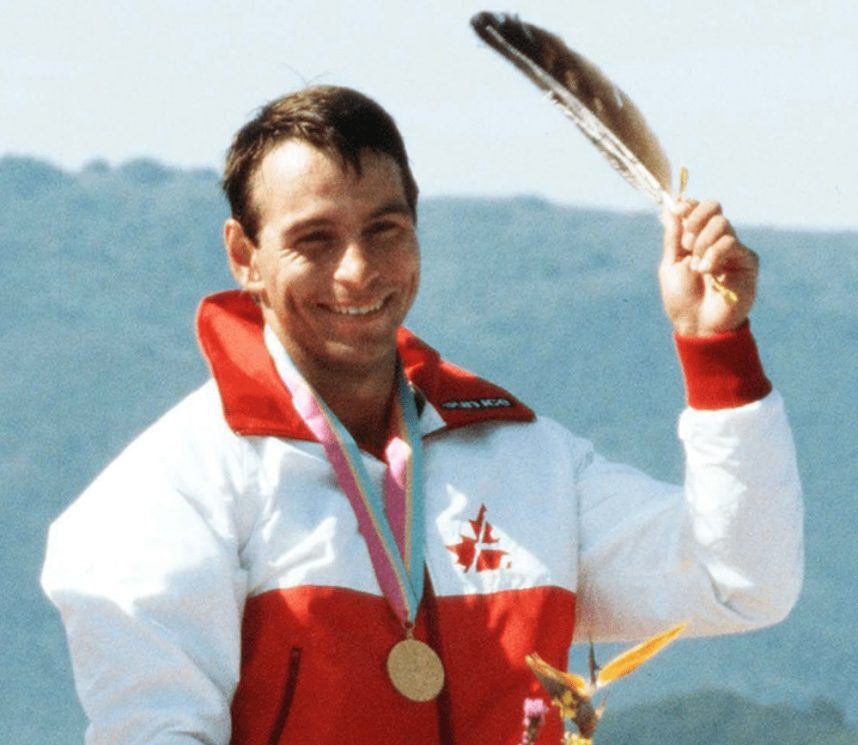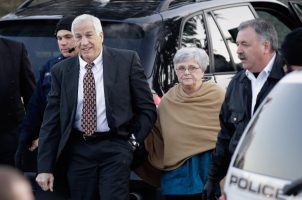Bovada’s Canadian Olympic Hero Told to Back Off by Michigan and Connecticut
Posted on: June 13, 2024, 07:17h.
Last updated on: June 14, 2024, 09:18h.
In 1984, Canadian kayaker Alwyn Morris won Olympic gold and became an Indigenous sporting hero after he raised the eagle feather salute on the podium in homage to his Mohawk Nation roots. The Olympian was later made a Member of the Order of Canada for his sporting success and charitable work.

Today, Morris is one of the owners of Bovada, the biggest offshore online gambling site that takes bets in the US. This week, Connecticut joined Michigan in asking the Olympian to back off or face legal action.
Connecticut’s Department of Consumer Protection Gaming Division (DCP) told Sports Betting Dime that it would send a cease-and-desist letter to Bovada within the week.
Michigan regulators sent a similar communication to the online gambling giant on May 29. The Michigan Gaming Control Board (MGCB) gave the company 14 days from receipt of the letter to pull its operations in the state or face legal consequences.
State Law Breach
Since both states have licensed and regulated online gaming, Bovada’s continued presence there constitutes black market rather than gray market operations.
The site has previously agreed to stop targeting players in Delaware, New Jersey, New York, Maryland, and Nevada when those states passed laws prohibiting unlicensed operators.
The MGCB confirmed to Sports Betting Dime that in its view Bovada was currently acting in violation of state laws.
These are, specifically, the Lawful Internet Gaming Act and the Michigan Gaming Control and Revenue Act — both of which prohibit offering internet gambling without a license from the state – as well as the Michigan Penal Code, which broadly prohibits illegal gambling.
Who’s Behind Bovada?
Bovada emerged from Bodog, the pioneering online gaming brand founded by Calvin Ayre. The Canadian established the brand in 2000 at a time when it was impossible to apply for an online gaming license in the US, and the legality of the offshore industry was unclear.
Bodog made Ayre a billionaire, but he sold the US-facing business after the enactment of the federal Unlawful Internet Gaming Enforcement Act (UIGEA) in 2006, which prohibited financial institutions from processing online gambling bets.
Ayre claims to have retired from the gambling business and now focuses on crypto. He sold the online gaming arm of the business to the Morriss Mohawk Gaming Group (MMGG), a company based out of the Kahnawake Mohawk Territory in Quebec. Morris is the founder and CEO of MMGG.
In 2009, MMGG changed the name to Bovada and migrated Bodog’s players to a new platform. In or around 2017, a company called Harp Media BV took a position in the company. Based in Curacao, the ownership structure of Harp Media is opaque.
Legal Troubles
In February 2012, the US Immigrations and Customs Enforcement Agency seized the Bodog.com domain for alleged illegal gambling activities, although at the time it was inactive.
At the same time, despite having officially quit the business, Ayre was indicted by the US Attorney for Maryland on charges of illegal gambling and money laundering. In 2017, he pleaded guilty to a single misdemeanor charge and all other charges were vacated.
In August last year, MMGG, Alwyn Morris, Calvin Ayre, and Harp Media were named in a proposed class-action lawsuit brought by Kentucky resident Billi Jo Woods.
The plaintiff accuses the defendants of profiting from illegal gambling in the state and seeks to recover losses. Kentucky has a 200-year-old gambling claw-back law, the Loss Recovery Act, which was designed to protect the families of destitute gamblers.
In 2010, the State of Kentucky used the act to sue PokerStars for offering illegal gambling. PokerStars settled the case for $300 million after a decade of litigation.
Related News Articles
Maryland iGaming Sees Signs of Public Support, Union Opposition
Most Popular
Sphere Threat Prompts Dolan to End Oak View Agreement
MGM Springfield Casino Evacuated Following Weekend Blaze
This Pizza & Wings Costs $653 at Allegiant VIP Box in Vegas!
Atlantic City Casinos Experience Haunting October as Gaming Win Falls 8.5%
Most Commented
-
VEGAS MYTHS RE-BUSTED: Casinos Pump in Extra Oxygen
— November 15, 2024 — 4 Comments -
Chukchansi Gold Casino Hit with Protests Against Disenrollment
— October 21, 2024 — 3 Comments -
VEGAS MYTHS RE-BUSTED: The Final Resting Place of Whiskey Pete
— October 25, 2024 — 3 Comments
















No comments yet